On Doping
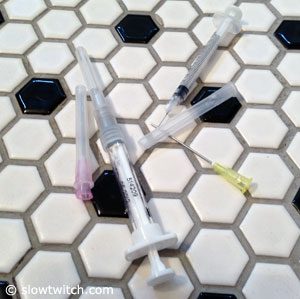
According to some more in the know than I, it is possible USADA may take it's final action on the Lance Armstrong doping case, which would be to hand its file over the Union Cyclist Internationale (UCI), cycling's world governing body. On the eve of this, I thought it appropriate to have a sober discussion on the topic of doping in sport.
In triathlon, it seems like we've kept time according to the calendar year, the Kona qualfying year, and the Armstrong year. In the Armstrong year-to-date "sober" is not how I would characterize our national discussion. A straightforward set of values, and an open discussion among men of goodwill on how best mechanically to execute the education and policing surrounding doping in sport, is our reasonable expectation. Instead, the debate has devolved into an unnecessary polarization among people of goodwill.
Worse—and I did not see this coming—it's become the backdrop and a playground for what seems to me no less than a cottage industry of trolls terrorizing those who they deem proper targets. These people are not limited to one persuasion. I was alerted this week to Facebook comments appending to an interview I conducted with USADA's CEO Travis Tygart two years ago. These comments appeared only last month, so were not reactions to our interview, rather simply the fruit of trolls scribbling vitriolic graffiti about a good man doing a tough job (a man with whom I have disagreements, but, inside our shared goal of a drug-free field of play). This discourse has not convinced the "undecideds" nor has it moved public opinion dial one way or the other.
My points of reference, when contemplating doping, are not Armstrong, Riis, Contador, Bruyneel, Ferrari, Fuentes. My anchors are my values, and these inform my plans for how to place my values into practice, both in my own life and in how we police our sport.
My message, to myself and to those who value my message, is this: it's simple, don't take performance enhancing drugs and race. It doesn't matter whether the race is sanctioned and is under a federation umbrella or not. It does not matter whether you are a front, middle, or back of the packer. If you do not think course cutting is appropriate for a back-of-the-pack athlete, then no rule infraction is appropriate for that athlete.
Let us say that I take performance enhancing drugs, and I don't reach the podium or take a qualifying slot from someone. This does not make it a victimless crime. I'm the victim. I wake up in the morning and know, every day, when I see that man in the mirror, a cheater is staring back at me.
If you think I'm simply laying of a moral trip on myself (and you), I encourage you to read some of the memoirs of past cheaters. See if their own self-loathing—contemporaneous with their racing, rather than in retrospect—reflect what cheaters likely feel at the time they're cheating.
For those not yet dopers but who are contemplating the idea, it would be wise to consider this moral consequence. Not only will you have to deal with the cost to your family's treasure, if the cost to your own moral psyche proves overwhelming there are also consequences to stopping a doping regime. Think twice before you start.
Half of all Slowtwitch readers are in their 40s or 50s, and that includes me. We see the advertisements for anti-aging clinics, and for testosterone replacement. I'm aware of the health argument. There is no doubt that supplementing with testosterone and anabolic steroids will, at first blush, turn back the clock for men in our age range. I encourage you to consider the side effects. I, for example, have an enlarged prostate. I do not want the side effects of alpha blockers (research their impact on athletic performance). Testosterone therapy, however, has as a side effect the increase in prostate size (beyond the softball-sized gland I carry around now). One in three of us geezers suffer from enlarged prostates. Testosterone supplementation will also increase our PSA, although it's not known how indicative this might be of an increase risk of prostate cancer.
Nevertheless, what androgenic agents do is cause the growth of fast-growing tissue. Like hair follicles. Muscle fibers. Red blood cells. I'm not giving you medical advice. I just wonder, as a man approaching his late 50s, as the first wave of cancer has begun to strike my boyhood friends, about the wisdom of taking agents that supercharge fast growing (e.g., cancer) cells.
Women were exhorted, a generation ago, to take supplemental estrogen. What we did not know then but do know now is that it was not an anti-aging panacea, rather an agent for the increase of incidence of stroke, blood clots, and breast cancer.
I guess I was just lucky. Growing up I was never cool enough to be courted by the crowd interested in mind-altering drugs, and never talented enough to face the pressure of performance enhancing drugs. For those of great talent, that pressure begins early, often as teenagers. I think we're lucky in America, in triathlon, not because Americans are any more culturally or morally wired toward clean sport. While young and talented American cyclists tend to enter the professional ranks early, as teenagers, the gateway drug to the pro card for American triathletes runs through a 4-year university program, where NCAA eligibility requirements, mentoring, and just the additional maturity and self-possession age brings grants an athlete perspective and moral strength, and readies him to withstand the pressures of doping specialists.
I'm guardedly optimistic that the accident of four years of university grants these more mature prospective pro triathletes (from any country) a layer of defense.
One argument I have heard from dopers is that "everybody cheats." Doping is considered, in this case, a form of rule breaking on a par with other sports' infractions. There are many arguments I could bring to bear that would unmask these false equivalencies as the straw arguments they are. Suffice it to say that the failure of timely payment of your car registration is not equal to extortion or blackmail, though each is a violation.
I'm writing above about our responsibilities as athletes, and as parents or mentors of younger athletes. We need to tell ourselves and our charges the truth, and that means not finding ways to excuse behavior that violates this ethic. If you believe the best evidence supports the case that an admired athlete took performance enhancing drugs—whether a baseball player, cyclist, nordic skier or triathlete—then there is no offsetting good that cancels this out. No historical separation between today, and the time bad acts took place, should give us comfort. The non-athletic can afford to look at athletes through different prisms: he brought baseball fever to our town; he's fighting the good fight against cancer. We, as athletes and mentors, have no such luxury when discussing the issue of PEDs and their use. We cannot afford to dilute our anti-doping narrative for any reason, if we attach weight to this issue.
This does not mean we need to tell our children that a Mark McGuire, Lance Armstrong, Bjarne Riis, is monolithically evil, rather their traits and behaviors are severable. I don't believe Riis a bad man. But he did a bad thing, and nothing he's done in the interim erases or mitigates what he did. After this week, you'll have seen all the evidence you're likely to see about Armstrong. No more hearings. No more appeals. What matters most is not what you think, how you believe, how you feel. What matters most is what you say to those who come asking for your opinion. I'm telling my young nephew pre-teens a narrative about good, or talented, or even heroic men when they are good, talented or heroic. But that does not downsize or downplay the issue of doping, or mitigate any culpability that rightly attaches to someone who doped. My narrative to my nephews is straightforward and sober on that account.
Doping is period zeitgeist. We've read this, haven't we? "They did it in an age where doping was expected and accepted." Of course this is moral hogwash. I lived in that day. I raced in that day. I knew a lot of athletes who raced in that day at much higher levels than I did, and who did not dope. If we are not honest about doping to those in our care—if we find reasons to say it's okay, or at least understandable, that our sports stars were dopers—then I fear we're promulgators of our own serial zeitgeist right now, and the cycle will not be broken.


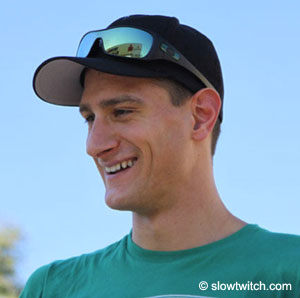
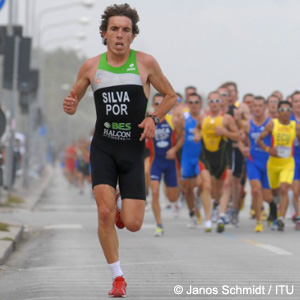
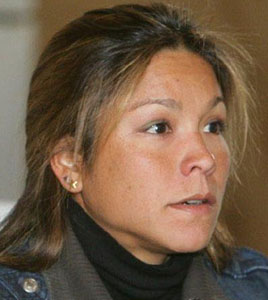
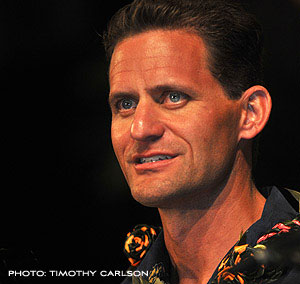
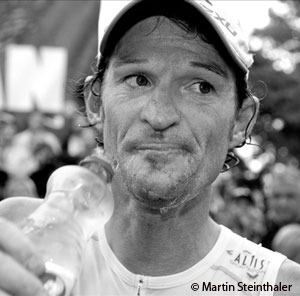
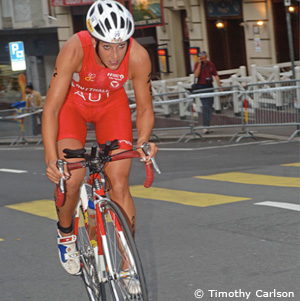
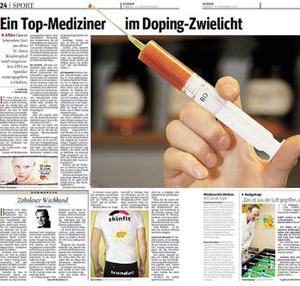
Start the discussion at slowtwitch.northend.network